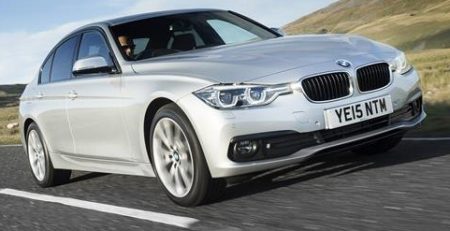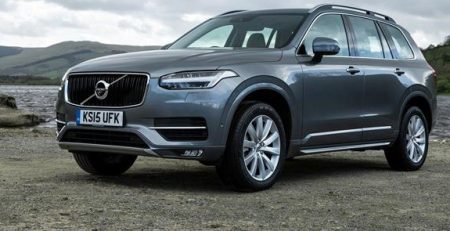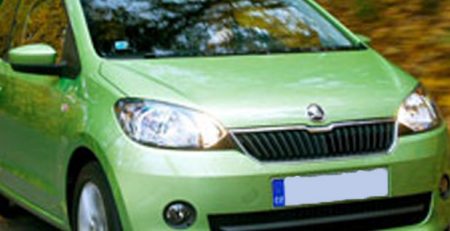Maximise resale value of your new BMW with these specs Specify you factory ordered car properly with a BMW configurator. Th read more
Petrol vs Diesel: The debate continues
Previously diesel cars were loud, odorous and more expensive to buy, as opposed to petrol cars being quieter, cheaper and not as fuel efficient.
Manufacturers have invested considerable time and effort to make diesel engines more of an attractive option resulting in more refined engines whilst petrol engines have become more fuel efficient.
However diesel cars are now known to producer higher levels of nitrogen oxides and particulates than petrol, leading to plans to introduce a diesel tariff in London from 2020 with other cities expected to follow. The recent Volkswagen scandal has suggested that diesel engines may be less fuel efficient and clean than stated.
It is worth taking a little longer to consider all your options before you make your final choice.
Driving
With a new generation of turbo engines diesel cars are becoming more than a match for their petrol counterparts, in terms of performance, noise levels and comfort.
If you are looking for power at lower revs, then a diesel could be the answer, especially if you are looking to tow a caravan/horsebox/trailer.
Cost of fuel
Diesel is now cheaper than petrol and combined with the fact that diesel cars use less fuel, you are likely to spend significantly less on fuel with diesel, especially on long journeys.
Generally with diesel engines you would get between 15% to 20% more miles per gallon than a petrol equivalent, although petrol engines are catching up by taking advantage of using smaller, efficient, turbo charged engines.
However diesel engines take longer to warm up than their petrol counterparts so there is less fuel saving on very short journeys.
Maintenance costs
On the whole diesel cars are slightly less reliable than petrol, servicing costs and repair costs can be higher.
Diesel engines have a particulate filter (DPF) which can become blocked with regular short journeys and usually requires replacing after a certain period. This period varies depending on car, number of miles and how it has been driven. A replacement particulate filter typically costs £1000-£3000.
This can mean that unless you cover long distances regularly, a diesel may not be for you.
Other running costs
Current UK road tax is based on CO2 emissions, meaning diesel cars tend to fall into the lower tax bands.
However several cities, including London are planning to start charging diesel drivers in a bid to reduce the relate pollution.
Insurance groups can vary between petrol and diesel versions of the same model, often diesel are slightly cheaper to insure.
Purchase price and depreciation costs
Diesels tend to cost more than equivalent petrol engines to buy.
Depreciation varies depending on the car, so it is worth checking for the models you are interested in.
Typically diesel engines are considered to have a longer life, especially for high mileages, so could hold their value for longer than a petrol in these conditions.
The environment
Diesel’s engine efficiency means that less fuel is used, and CO2 emissions are approximately 15% - 20% lower than petrol. However the stated mpg differences, can be less in real world trials.
However diesel engines produce much higher levels of nitrogen oxides and tiny harmful particulates which have been linked to health issues associated to asthma, amongst others.
Diesel manufacturers have fitted vehicles with filters and catalytic converters, although in some cases this has caused reliability issues.
Weighing it up
Diesel will save you on fuel and road tax costs, however if you factor in the extra cost to buy, plus servicing and maintenance you may need to cover over 10,000 miles each year to financially equal the equivalent petrol choice.
Recent scandals and changing opinions on the polluting impact of diesel engines, could harm diesel resale values.
At a glance...
Pros of diesel:
- Financial - Diesel engines use less fuel. May hold their value better with high mileage
- Environmental – Lower CO2 emissions resulting in diesel drivers being rewarded with lower tax bands than petrol owners (tax band often referred to as road tax)
- Efficiency – CO2 emissions are lower than petrol
- Overall Experience – Offer power at low revs which provides a better overtaking power and towing ability than petrol equivalents
Cons of diesel:
- Financial – Usually cost more than their petrol equivalents. Servicing may be slightly more expensive and changing the Diesel Particulate Filter can be a significant expense. Charges are being introduced for driving in cities which could cost £3,000 per year for a daily commute in a diesel
- Environmental – Diesel fuel produces small particles that have been linked to health issues such as asthma
- Overall Experience – Diesel engines tend to be slightly noisier, although improving
Pros of petrol
- Financial - Petrol is cheaper than diesel, and the cars are generally cheaper to buy
- Driving Experience – Petrol engines are less noisy
Cons of petrol
- Financial – Engines are less efficient and use more fuel than diesel, with depreciation slightly more
- Environmental – Petrol engines emit more C02 than diesel cars
Alternatives
Liquid Petroleum Gas or LPG:
Benefit - costs half the price of both diesel or petrol and has significantly lower C02 emissions. Most petrol engines can be converted to LPG. This involves a one off cost of approximately £1,600. Resulting in your car being able to run on both petrol and LPG which are stored in separate tanks.
Drawback – limited availability (with only 1,400 stations in the UK), and it’s poor fuel economy which is approximately 20% lower than petrol.
Biodiesel:
Benefit - can be used with a small modification to the engine. Ranges from 100% pure to a 20% mix with standard diesel. Biodiesel has very low carbon emissions (pure biodiesel is 100% carbon neutral).
Drawback – suffers from a lack of availability.




